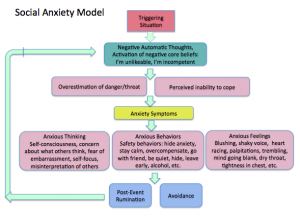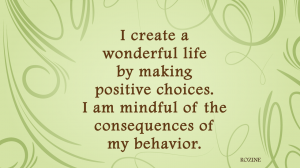New Years is a time to reflect on your life and reevaluate the things you want to change or improve. It is easy to come up with a list of goals, but often times those goals are given up on relatively quickly. It is incredibly common for New Years resolutions to be given up on by February. Here are some helpful ways to try and stick to your resolutions and see them through.
- Keep your resolutions simple. Many people want to completely change their lifestyle. While there’s nothing wrong with wanting to change things about yourself, it can be difficult to take on a large task such as changing your lifestyle. It’s better to break things down into smaller steps and portions.
- Give yourself deadlines. By breaking down your goals and giving yourself deadlines, you’re more likely going to follow through. It’s also helpful to use actual dates. For example: I will read one book by February 1, 2019. When your deadline is vague, it is easier to not follow through.
- Write things down. Keep a journal, or use a calendar. You’re more likely to follow through and keep yourself accountable when you write things down.
- Be realistic. Don’t set unrealistic expectations for yourself. You know yourself better than anyone. If you are someone that doesn’t exercise at all, it isn’t realistic to set the goal that you’ll work out every single day. You can have a big goal, but break it down into pieces. Keeping deadlines is helpful with this. For example, say you want to work out two days a week in January, and then step it up to three days a week in February.
- Keep track of your progress. This will help you stay focused and motivate you to keep going.
- Remember to be positive and kind to yourself. Negative thoughts and self doubt will quickly shut you down and keep you from reaching your goals. “You are far too smart to be the only thing standing in your way.”
How to Get Help in San Jose/Los Gatos
The Cognitive Behavior Therapy Center in Silicon Valley (San Jose/Los Gatos) specializes in therapy and counseling with adults, children and teenagers. Call us in Los Gatos at (408) 384-8404 or Click to send an email for more information on how we can help you or your family members improve your outlook.
Silicon Valley Communities We Serve
Cognitive Behavior Therapy Center of Silicon Valley offers evidence-based therapy for Anxiety and Obsessive Compulsive Disorder near the following Silicon Valley/San Jose communities:
San Jose Therapy Counseling • Saratoga Therapy Counseling • Los Gatos Therapy Counseling • Monte Sereno Therapy Counseling • Cupertino Therapy Counseling • Campbell Therapy Counseling • Mountain View Therapy Counseling • Los Altos Therapy Counseling • Sunnyvale Therapy Counseling • Santa Clara Therapy Counseling
CONTACT US
Saratoga: (408) 384-8404
Click to send an email


